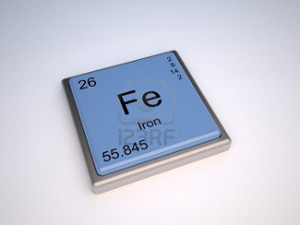The Effects of Tea on Iron Absorption

It has been told that drinking tea may have iron-inhibiting effects in the body, and because of that, some people have been avoiding tea. But, little do we know that the iron absorption effects of tea are minimal, because it only affects nonheme iron, and it’s not necessary to stop consumption in fear of being iron deficient.
Before we get confused, let’s have a small overview as to what dietary iron is.
Dietary iron is a very important element particulary because it transports oxygen to the blood hemoglobin and muscle myoglobin. It also plays a major role in most of the metabolic processes and helps in the regulation of cell growth. Deficiency in dietary iron may cause fatique, decreased immunity and poor performance, and may eventually result in anemia.
Dietary iron is divided into two forms: the heme and the nonheme iron. Between these two, hem is the more readily absorbed form of dietary iron, containing the majority of ferrous iron valences. It is not affected by any dietary factors; therefore, tea could only influence the body’s nonheme iron count.
Now why shouldn’t we be afraid to drink tea?
Any iron-inhibiting effects of tea can easily be supplemented. These nonheme dietary iron are those that are found in non-meat products and could be replenished by added vegetable and grain consumption. The heme iron, those from meat and poultry products, are left untouched. And for the record, only 2-20% of nonheme iron can be possibly absorbed by the body, compared to the 15-35% of heme iron – surely a huge difference!
You can also enjoy the lighter brews of tea as their tannin components(the one responsible for inhibiting iron), are significantly lower. Increase your intake of Vitamin C-rich food and drinks, as they help improve the absorption of nonheme iron. You might also want to enjoy your tea with citrus products such as lemon and oranges. Vitamin C rich food helps enhance iron absorption by converting ferric iron to the more absorbable ferrous iron. In addition, it helps prevent ferrous iron from oxidizing back to the ferric form. And finally, if you have iron deficiency issues, drink you tea in-between meals, and possible up to at least one hour after a meal to minimize absorption interference.
Overall, tea will not affect individuals who enjoy a healthy, balanced diet. And moderate tea drinking, that being 3-4 cups a day, does not have any major unfavorable effects on the body’s iron levels.
By: Ara Rosalia
Source: Tea Pearls of Wisdom on December 2, 2012
TIDBIT: To read part one of this article and to stay up to date on the latest additions to our store, you can sign up for our Tin Roof Teas newsletter. This can be done through one of our Tea Consultants the next time your in the store or through our Facebook page.

